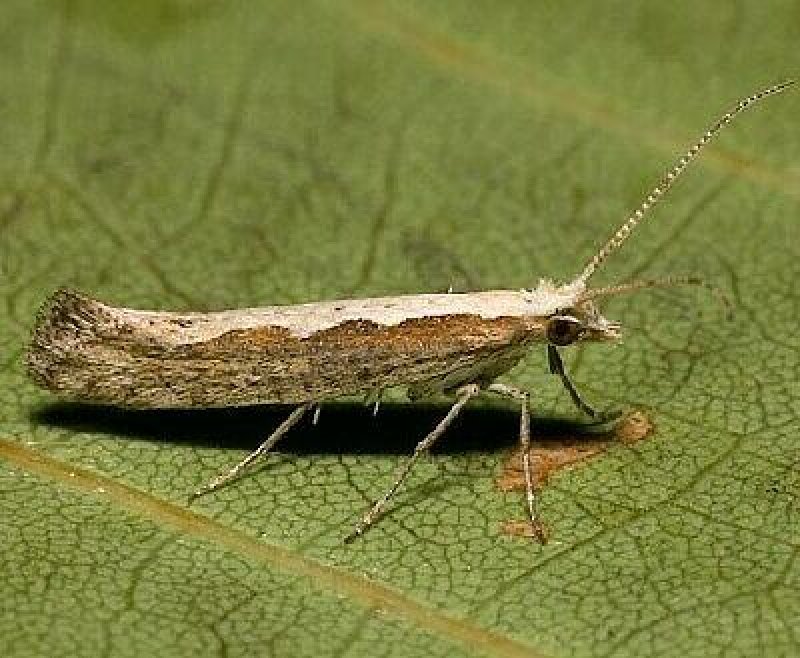NPR reports that as of now, the [diamondback moth], which cause billions of dollars in damage to [cabbage, cauliflower, broccoli and kale] vegetable crops every year, are immune to just about every pesticide used to deter hungry insects. At Cornell University, entomologists are experimenting with genetically modified diamondback moths, implanted with a deadly gene that is supposed to kill any offspring that inherit it. The lab-grown moths are a new way to battle the swarms of their wild-born counterparts that breed in these types of crops, circumventing the traditional pesticide-use method.
A British biotech company called Oxitec developed the new breed of moth. Their effectiveness is currently being tested in outdoor cages, where the male moths—carrying the gene—participate in the mating cycle, hopefully passing their bad genes to their offspring. Farmers in New York, where cabbage is a popular crop, are already excited about trying out the weaponized moths for themselves.
…
Despite these early stages of the testing process, both Oxitec and the USDA say that the genetically modified moths aren’t harmful to humans. To that end, the USDA has already issued permits allowing field tests of the insects, meaning that your cabbage could soon be safer and more plentiful than ever.
The GLP aggregated and excerpted this article to reflect the diversity of news, opinion and analysis. Read full, original post: Genetically Modified Moths May Be the Key to Saving Cabbage Crops































